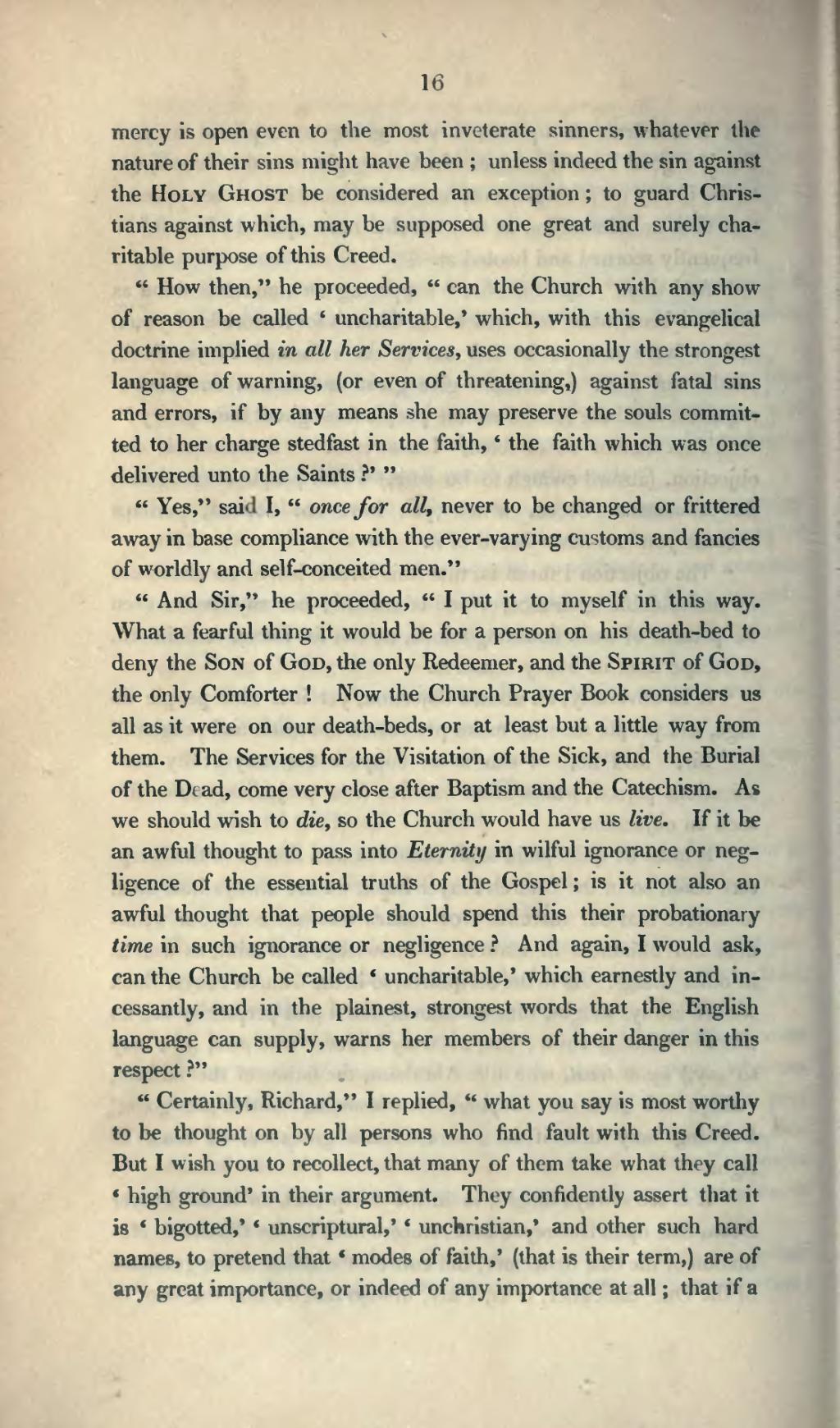16
mercy is open even to the most inveterate sinners, whatever the nature of their sins might have been; unless indeed the sin against the Holy Ghost be considered an exception; to guard Christians against which, may be supposed one great and surely charitable purpose of this Creed.
"How then," he proceeded, "can the Church with any show of reason be called 'uncharitable,' which, with this evangelical doctrine implied in all her Services, uses occasionally the strongest language of warning, (or even of threatening,) against fatal sins and errors, if by any means she may preserve the souls committed to her charge stedfast in the faith, 'the faith which was once delivered unto the Saints?'"
"Yes," said I, "once for all, never to be changed or frittered away in base compliance with the ever-varying customs and fancies of worldly and self-conceited men."
"And Sir," he proceeded, "I put it to myself in this way. What a fearful thing it would be for a person on his death-bed to deny the Son of God, the only Redeemer, and the Spirit of God, the only Comforter! Now the Church Prayer Book considers us all as it were on our death-beds, or at least but a little way from them. The Services for the Visitation of the Sick, and the Burial of the Dead, come very close after Baptism and the Catechism. As we should wish to die, so the Church would have us live. If it be an awful thought to pass into Eternity in wilful ignorance or negligence of the essential truths of the Gospel; is it not also an awful thought that people should spend this their probationary time in such ignorance or negligence? And again, I would ask, can the Church be called 'uncharitable,' which earnestly and incessantly, and in the plainest, strongest words that the English language can supply, warns her members of their danger in this respect?"
"Certainly, Richard," I replied, "what you say is most worthy to be thought on by all persons who find fault with this Creed. But I wish you to recollect, that many of them take what they call 'high ground' in their argument. They confidently assert that it is 'bigotted,' 'unscriptural,' 'unchristian,' and other such hard names, to pretend that 'modes of faith,' (that is their term,) are of any great importance, or indeed of any importance at all; that if a
